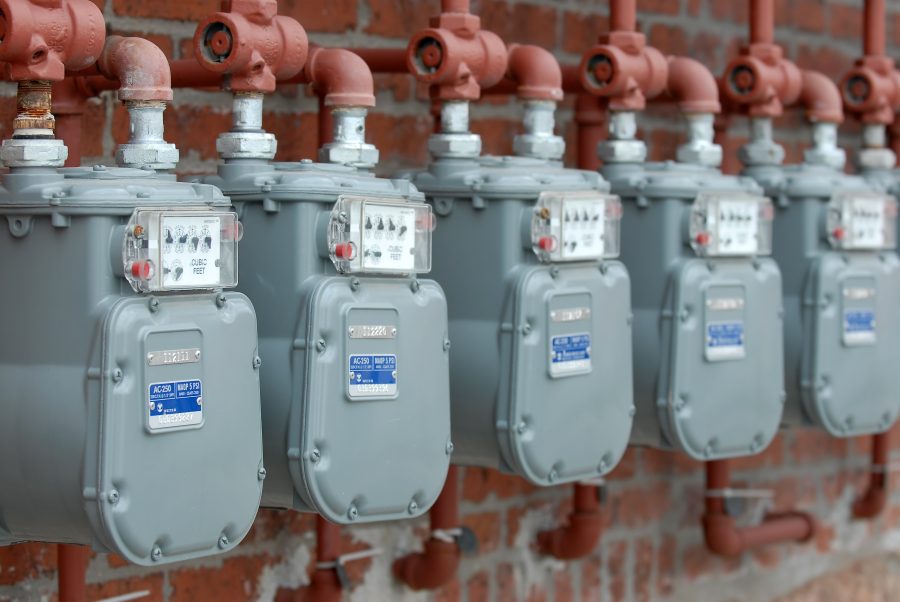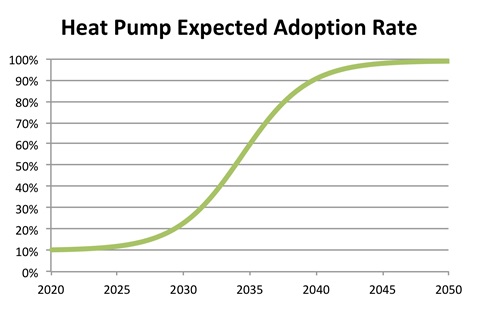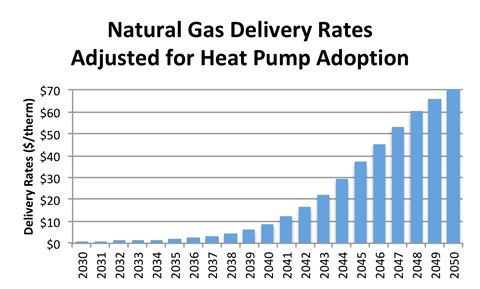The Future of Natural Gas in Massachusetts
Q: What is the future of natural gas in Massachusetts?
A: The Attorney General’s Office just asked the Department of Public Utilities the same question. The Attorney General expects the Commonwealth’s legally binding greenhouse gas emissions target of net-zero by 2050 will soon have a “profound impact on gas distribution system management, operations, and rates.” Both the Patrick and Baker administrations determined that the primary strategy to achieve the state’s net-zero emissions goal is to switch all of our homes and businesses to electric heat pumps powered by zero-emission electricity sources.

Q: How are natural gas companies responding?
A: The natural gas utilities have suggested that the Commonwealth should instead invest in energy efficiency as the primary strategy to reduce emissions. They are asking ratepayers to pay the utilities additional fees for emissions reductions. The problem is that no matter how efficient your Massachusetts home is, you’ll still need some energy to heat it. The Commonwealth will never achieve its net-zero emissions goals if that energy is coming from natural gas.
Q: Could we switch to renewable biogas?
A: There just isn’t enough biogas. Even if we switched the nation’s entire corn production to produce biogas – we’d only have enough biogas to heat one-sixth of our buildings. And biogas is expensive – about 7 times the cost of natural gas. And since biogas is produced primarily in the Midwest – billions of dollars a year would flow out of the state. You’d also be right to wonder what we’d eat if we decided to burn our food to stay warm.
Q: What does this mean for Lexington?
A: Lexington has begun the transition to all-electric buildings. Every one of the Town’s newest buildings are heating and cooling with high-efficiency heat pumps. Hastings School, Lexington Children’s Place, the Fire Station, and the Visitor Center are all running on 100% renewable electricity and with lower total cost of ownership. Homeowners are also making the transition to heat pumps for the same reasons. Over the last two years, 10% of Lexington’s natural gas customers have switched from heating their homes with natural gas to heat pumps.

Q: What happens when gas companies lose customers?
A: It won’t be pretty. Lexington residents spend $6 million a year just to maintain our local natural gas pipeline. When gas customers switch to heat pumps, the remaining customers’ rates will be forced to rise to cover those fixed costs. That will only encourage more people to switch to heat pumps, and the cycle accelerates quite rapidly.
Natural gas delivery rates are expected to rise by a factor of 8 from 2030 through 2040 as heat pump adoption rates accelerate. The years from 2040 to 2050 will be even worse – with expected distribution rates in 2050 rising to 66 times higher than 2030 rates.

Q: What does this mean for homeowners who are heating with natural gas today?
A: About 1,000 Lexington homeowners currently have boilers, furnaces, or air conditioning systems that are close to the end of their useful life. Is your furnace or air conditioner old enough to vote? Are you on a first name basis with your maintenance folks? If so, you might want to begin by deciding what technology you want in your home for the next 15 or 20 years.
The easy way out would be to just replace your heating or cooling system with exactly what is there right now. But ask yourself, would you buy the same phone today that you bought 15 or 20 years ago, or the same computer, or the same car? Of course not.
And you certainly wouldn’t knowingly chose a system whose fuel costs were expected to increase much more rapidly than the alternative over the next 15 or 20 years.
Q: What do air conditioners have to do with the future of natural gas?
A: 20 years ago most New England heating systems were designed to be completely independent of the home’s air conditioning systems. Today’s heat pumps provide both heating and cooling in one integrated package that far outperform both the heating systems and the air conditioners of just 5 or 10 years ago.
20 years ago if you wanted a phone and a camera, you bought a Nokia and a Nikon. Today most people just buy a phone. You can buy a heat pump today for about the same price as a high efficiency air conditioner. When a heat pump is a better air conditioner and provides heat as a bonus, why would anyone ever buy another air conditioner? Air conditioners are going to go the way of handheld cameras. I’m sure some people will still buy them 20 years from now, but most people will wonder what they were thinking.
In Lexington we pride ourselves on being ahead of the curve. You won’t want to be left behind this curve and find yourself locked in to yesterday’s technology for 15 or 20 years when the market has moved on.
Send your sustainability questions to questions@sustainablelexington.org

of the Sustainable Lexington Committee
